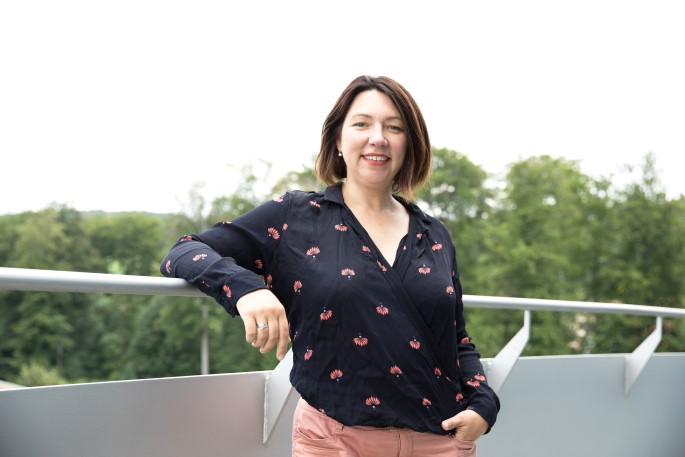ARISE: Training the next generation of core facility managers
Published: 2020-12-01
Between 2021 and 2025, EMBL and Marie Sklodowska Curie programme will award 62 three-year fellowships to talented technology experts who wish to advance technology development in the life sciences and receive training to operate life science research infrastructures. ARISE: Career Accelerator for Research Infrastructure Scientists is an impressive fellowship program and a unique, interdisciplinary opportunity for experienced STEM professionals - in Europe or abroad. For three full years, the fellows will be integrated into EMBL technology development and service providing groups across 6 EMBL sites as well as in partner institutions in industry. During this time, they will develop new technologies while gaining the training and exposure necessary to provide the technology as a service to external researchers. Tanja Ninkovic, ARISE Programme Manager, EMBL, and former Euro-BioImaging Communications Officer, is one of the leading architects of the ARISE fellowship program. In the interview below, she provides some insights and encourages professionals from the microscopy and imaging fields to apply to this unique program.

How did the idea for this unique fellowship program come about?
Tanja Ninkovic: In part, the idea came from personal experience. Core facilities are very important in today’s fast-paced scientific environment, because they provide leading-edge services to researchers. As project manager for the Cryo-EM platform at EMBL, I worked in an operational, service-oriented environment, while at Euro-BioImaging, I learned about pan-European and national strategies. In both jobs, I gained a real insight into the great impact that good facility staff have on the progress of basic research and into multiple dimensions of their jobs. Beyond science, they must know so many things. They have to understand what the user wants, how the technology works, and how to keep developing technologies and services to continuously fulfil rapidly evolving user’s need. They also need to know the ins and outs of infrastructure management, have good interpersonal skills, and show that their core facility is contributing to scientific advancement by continuously improving its technology. This is an extremely exciting career and combines a number of different types of expertise. Despite the importance of this role, up to our knowledge, there was no comprehensive programme to train core facility staff to develop new technologies and allow them to implement them as a service to external researchers, while at the same time being trained to provide ongoing services and manage service infrastructures. This is where ARISE comes in: To train and develop Europe’s next-generation leadership for research infrastructures in the life sciences.
Who is funding this program?
Tanja Ninkovic: This is a unique fellowship programme created by EMBL in association with the Horizon 2020 programme’s Marie Skłodowska-Curie Actions and with 46 partner organisations. In total, we gained 6.8 million Euros over five years for this programme and EMBL will co-fund additional 5.9 million.
How does the fellowship work?
Tanja Ninkovic: This program is designed to create a community of like-minded professionals. Each year, roughly 20 fellows will be selected based on their research proposals. Although they will be integrated into different units across EMBL, they will come together regularly for interdisciplinary administrative courses (finance, legal, management, intellectual property…) and for networking/team building activities. Each fellow will participate in four secondments at different EMBL facilities or partner institutions – including industry. We hope that fellows will build lasting relationships with other fellows and the teams they work with, which they will take with them to the next step in their career. Within the European research community, it is important for people to know each other, learn from each other, exchange best practices, and create new opportunities to collaborate on bigger projects for the advancement of scientific excellence.
What opportunities are available for imaging scientists or analysts?
Tanja Ninkovic: The ARISE program is looking for good applicants across all STEM backgrounds, from imaging, through bioinformatics and data sciences to automation, high precision mechanics or machine learning. EMBL’s Advanced Light Microscopy facility and Electron Microscopy Core Facility are both part of the program – along with a number of other EMBL research teams (click here for a complete list) whose activities are related to imaging and bioimage analysis. I would encourage microscopists, image analysts or other imaging scientists who want to become future leaders of core facilities or bigger infrastructures, who love to develop technologies and have experience in it, to apply. Engineers, physicists doing optics, those who want to work on technology development but also learn about service provision and how to operate a Life Science research infrastructure, should really take advantage of this unique opportunity.
Click here for a complete programme overview.
Click here to learn more about the application process.
Click here for more information on eligibility.
